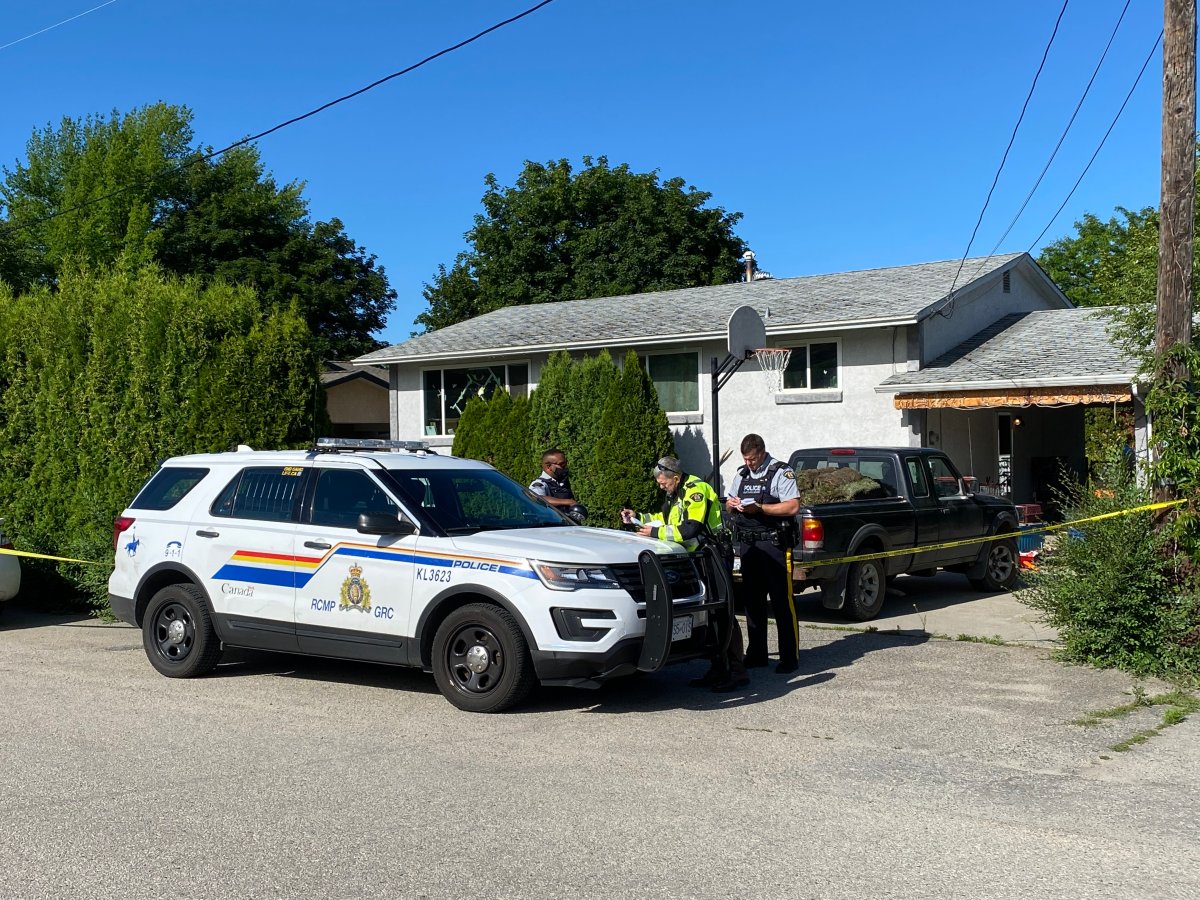More information about a 2021 killing and castration in Kelowna, B.C., is coming to light as the trial for the accused inches toward its start.

In June of 2021, Kelowna RCMP said Darren Middleton was killed at his Sycamore Road home. Shortly thereafter, a suspect named Dereck Sears was charged with second degree murder and interference with a body.
Mounties said Sears and Middleton were known to one another but little about the case has been made public since.
The trial is expected to start Oct. 10, but that deadline may be optimistic, as lawyers are currently in week six of what was scheduled to be a four-week voir dire, hammering out the admissibility of evidence that can be used in the upcoming court process.

If the trial was to be in front of a jury, these issues would have been covered under a publication ban but the matter is now set before a judge-alone and the court process is open, offering an early glimpse into some of the complicated issues behind the killing.
On Thursday, one of the issues taking some time to hash out is the admissibility of a police search of Sears, a transgender woman who now goes by the name Gabriella.
According to her lawyer Jordan Watt, when Sears was arrested, she alleged to police that she’d been sexually assaulted by Middleton, whose testicles were missing when his body was found.
A subsequent search of Sears, however, did not take the rights of a potential sexual assault victim into account, and the process of evidence collection was both humiliating and degrading. Watt argued it also fell short of the expectations of police when collecting evidence for a sexual assault.
Watt described Sears being left naked, only being able to cover parts of her body when she requested a shirt. She also had swabs taken for evidence in a manner that wasn’t sensitive to what she said she’d been through.
Watt said the arresting officers should have known better, given that they were experienced and in senior roles.
“It’s, in our respectful submission, just is not enough to say, ‘We understand that would have been embarrassing’,” Watt said, referring to earlier testimony from police where they indicated insight into Sears’s concerns.

“It’s just not only what they did, or how they did it, but it was just how cavalier the entire process was and, as I submitted earlier, it provides an appearance that this is just a matter of routine. But it is crystal clear ..that they did nothing to protect the privacy or dignity and there were no steps to minimize such significant issues.”
Sears’ identity or experience was not taken into account.
“The double whammy is you’ve got this process that we’ve already put an Indigenous trans person through — that being strip-searched and then you’ve got the additional degrading, humiliating, embarrassing aspect of going further in terms of taking the swabs,” he said.
Swabs, he said, require more than a visual inspection and are more intrusive, and they should have been dealt with in a careful manner.
Whether these issues will be enough to alter the way this police evidence is presented at trial remains to be seen. There are several other pieces of evidence also under scrutiny this week.
- Infant, grandparents killed in Highway 401 crash after police pursuit from LCBO robbery
- Trump faces jail threat as judge fines him for breaking gag order during trial
- Canada’s most wanted fugitive arrested in P.E.I. over Toronto homicide
- London sword attack: 14-year-old killed, 4 injured by man on stabbing spree




Comments